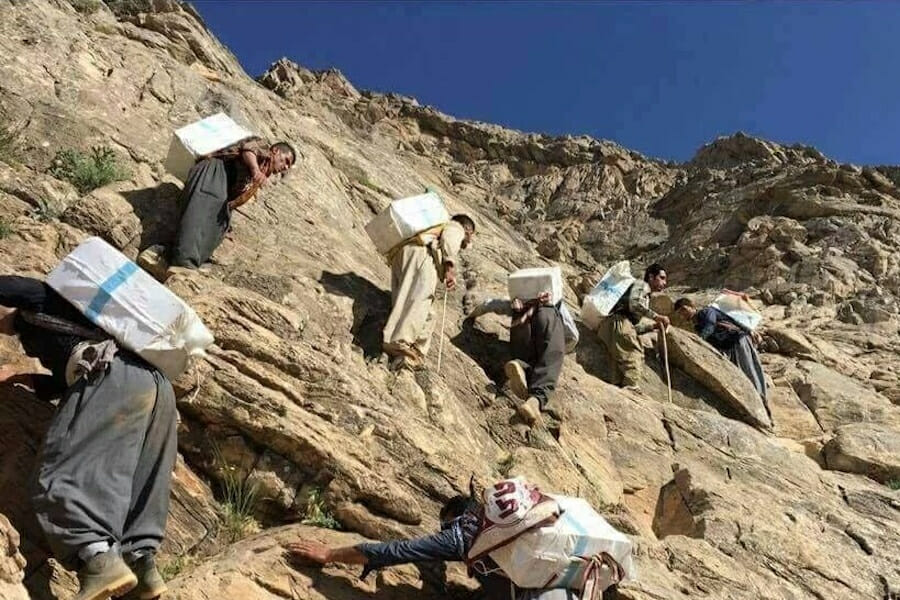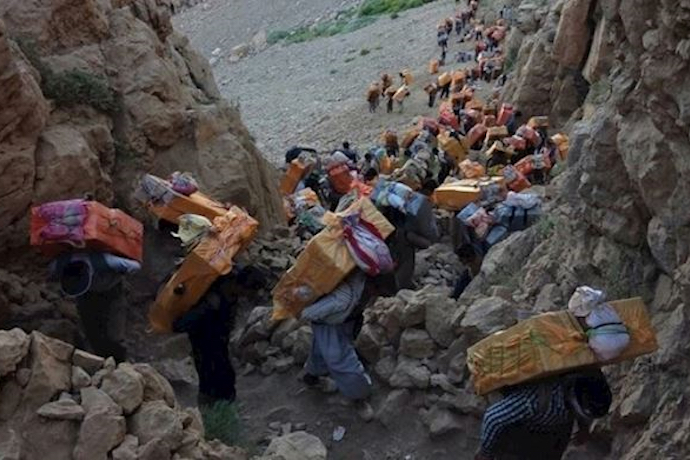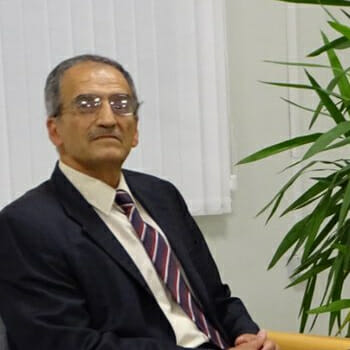
Portering in the Harshest Areas of Iran
Portering is described as carrying loads on the back or shoulder of a human being or with an animal in harsh areas.
Back carriers are carrying goods between the two sides of the borderline, which are sometimes harsh and dangerous areas, simply to earn their daily living. Now in Iran, back carriers work more in the provinces of West Azerbaijan, Kurdistan, and Kermanshah. Most of them are carrying goods due to unemployment and with little pay.
 The goods are transported across the borders to border cities and villages on the back of back carriers. Most of these goods are TVs, air conditioners, heaters, cigarettes, tea, tires, clothing, and textiles. Most of the back carriers are young people but also middle-aged and elderly people between the ages of 13 and 80.
The goods are transported across the borders to border cities and villages on the back of back carriers. Most of these goods are TVs, air conditioners, heaters, cigarettes, tea, tires, clothing, and textiles. Most of the back carriers are young people but also middle-aged and elderly people between the ages of 13 and 80.
Kavan, a Kurdish citizen, says portering in Kurdistan’s border regions does not differentiate between women and men, old and young; many female back carriers inevitably turn to portering in order to make a living, a choice out of necessity for the sake of providing bread.
Because of the lack of infrastructure and the lack of industrial development in these areas, people have turned to this high-risk job. One of the main factors behind the expansion of this dangerous activity is the lack of job opportunities, as well as the lack of factories and the investment system in the border towns, which caused a massive flood of workers’ influx into portering. For example, Kurdistan’s share of GDP is 0.95%, that is to say, less than one percent and Kurdistan’s ranking in this respect is 23 in the whole country.
 Kavan, the Kurdish citizen, writes in his Twitter, that portering is not really a job, but a destructive phenomenon planned in the Tehran think tanks, which leads to huge social and economic losses. And it is much more painful and hard work, they give their lives in this manner to bring bread to their loved ones.
Kavan, the Kurdish citizen, writes in his Twitter, that portering is not really a job, but a destructive phenomenon planned in the Tehran think tanks, which leads to huge social and economic losses. And it is much more painful and hard work, they give their lives in this manner to bring bread to their loved ones.
Shahriarvand, another Kurdish citizen, wrote that when 15 billion euros of non-oil exports go missing, according to regime officials, and $150 billion from the nuclear deal is used for terrorism in Syria, Lebanon, Iraq, and Yemen, the result is that it becomes impossible to make a living for the Kurds in Iran through another method.
Many of the back carriers are shot dead and killed by police forces in the course of transporting goods from the border, in addition to being hit by avalanches or being killed by rocks and drowning in the river. And after that, their mourning families lose their breadwinner.
 On January 28, 2017, as a result of the avalanche in the vicinity of Beiran Olya village, 10 km from the city of Sardasht, 16 back carriers were buried under the snow. The incident killed four people and caused injuries to a number of other people.
On January 28, 2017, as a result of the avalanche in the vicinity of Beiran Olya village, 10 km from the city of Sardasht, 16 back carriers were buried under the snow. The incident killed four people and caused injuries to a number of other people.
During his election campaign in 2013, Iran’s President Hassan Rouhani said in a trip to Sanandaj to the people of this city, “I promise that in the government of hope and wisdom, the dignity of the Sunni tribes will be restored.”
But the announced number of back carriers who were killed by the shooting of border guards during the government of Hassan Rouhani is 212. The age of these people is between 13 and 70. It is said that some of the back carriers have committed suicide under pressure, especially when their goods were seized by the border guards.
Ahmed Shaheed’s report on human rights in Iran addressed this issue and has mentioned: “However back carriers and tradesmen are systematically targeted by Iranian security forces in the border regions.” According to this report, the sentence of the porters, who make a living by smuggling goods such as tea, tobacco, and gasoline from the border, is months of imprisonment or the equivalent of the value of goods. The report states that Iranian border guards are shooting at porters, killing and injuring dozens of them every year.
In the border towns, back carriers are praised as honorable and hardworking people who are seeking dignified livelihoods. But the Iranian regime, enjoying economic and security domination, has prevented them from moving, and the Revolutionary Guards, who are the source of all the smuggling and illegal entry, consider this to be in contradiction to their interests and therefore shoot them.
In Kurdistan, children, women, and even elderly people are aging faster under the burden of carrying heavy goods through the mountains, and if they are fortunate enough to survive the border guard attacks, they may be breathing their final breath by a stone in the middle of the road, in the mountainous paths, under the heavy loads that they carry. This is the result of 40 years of clerical rule in Iran.
